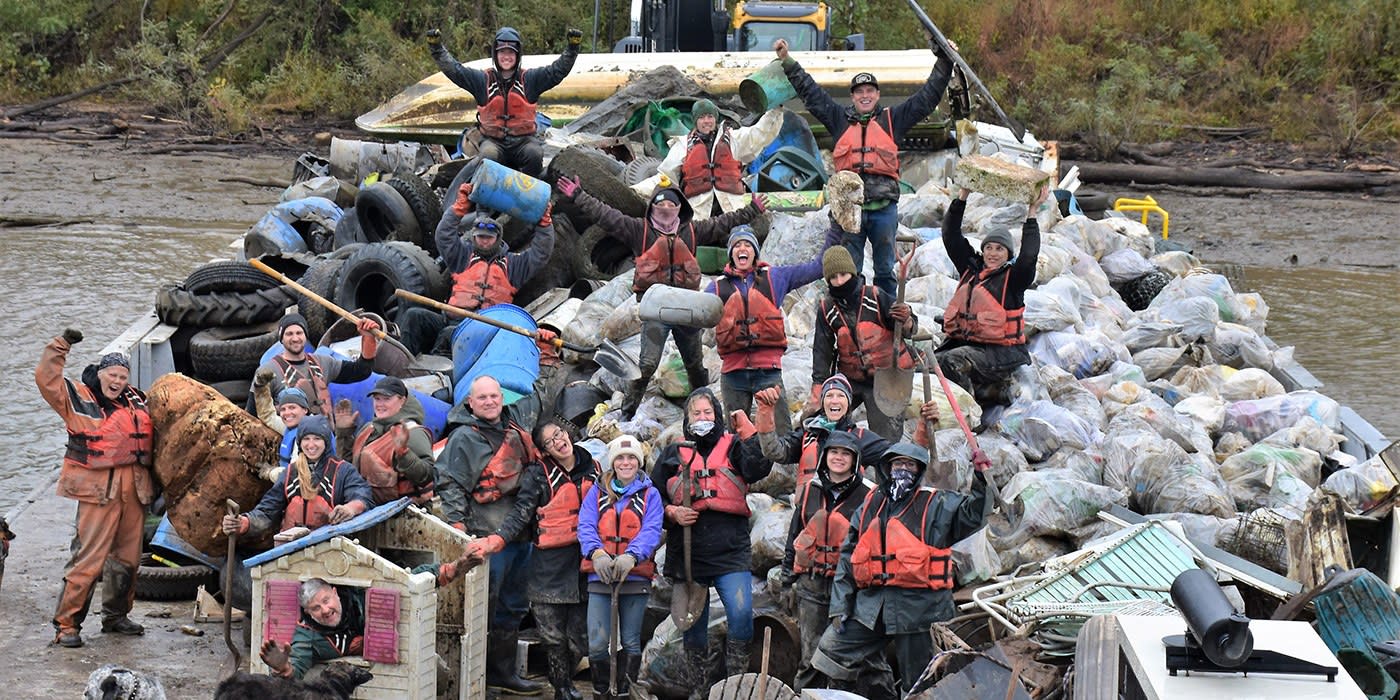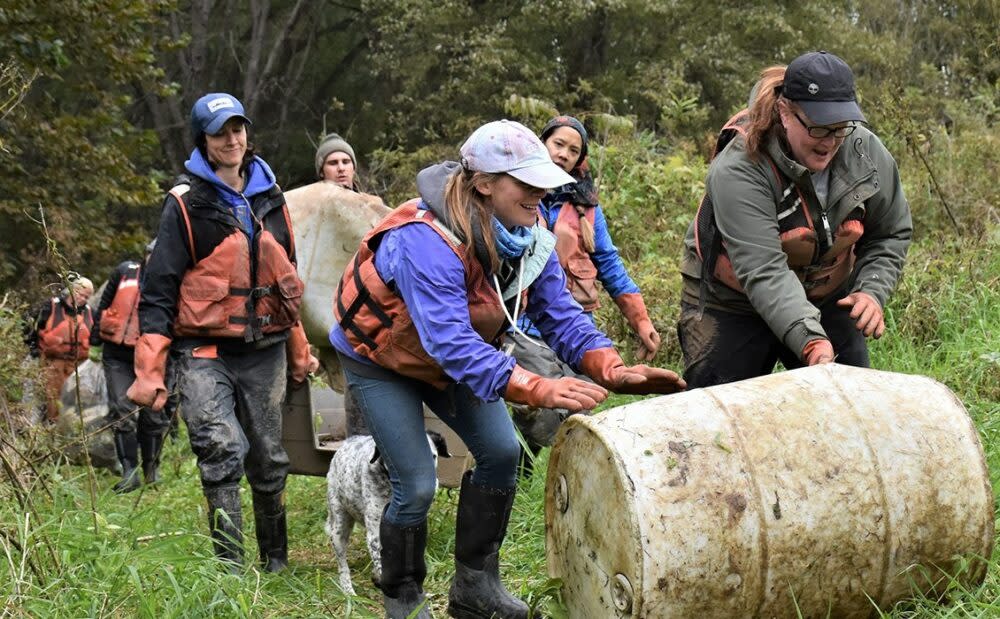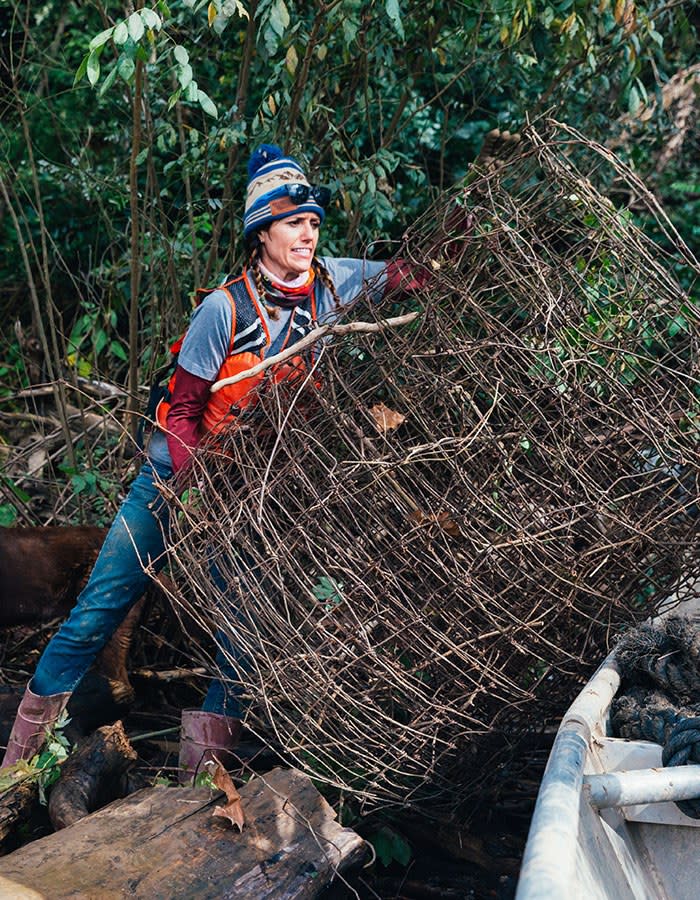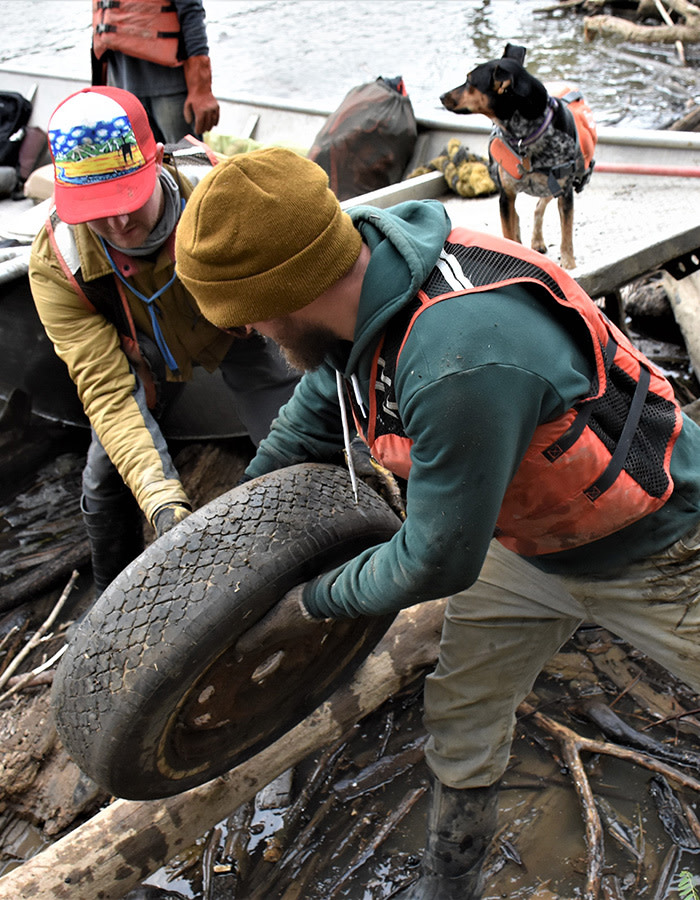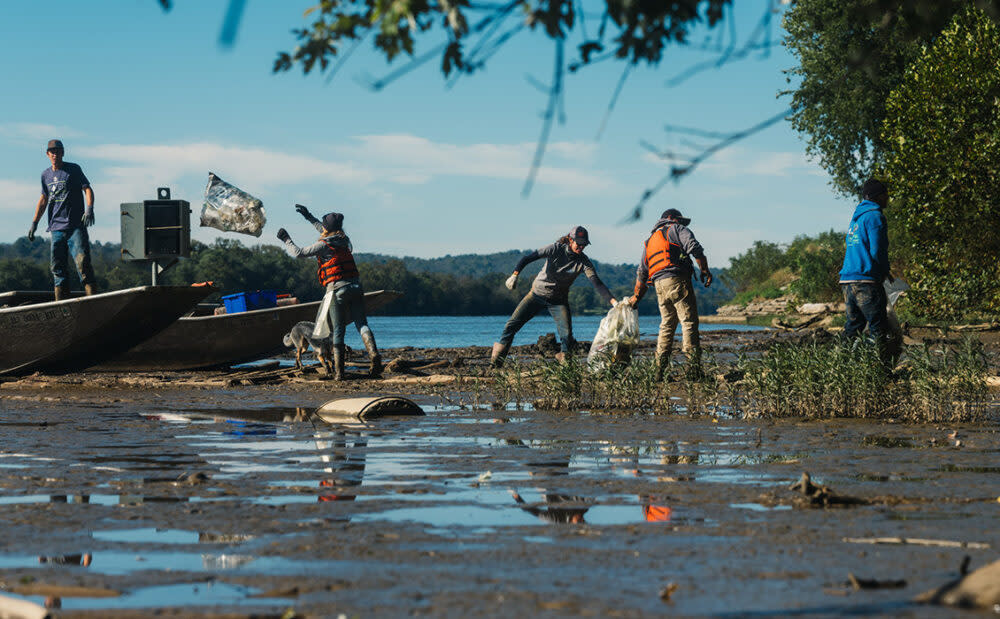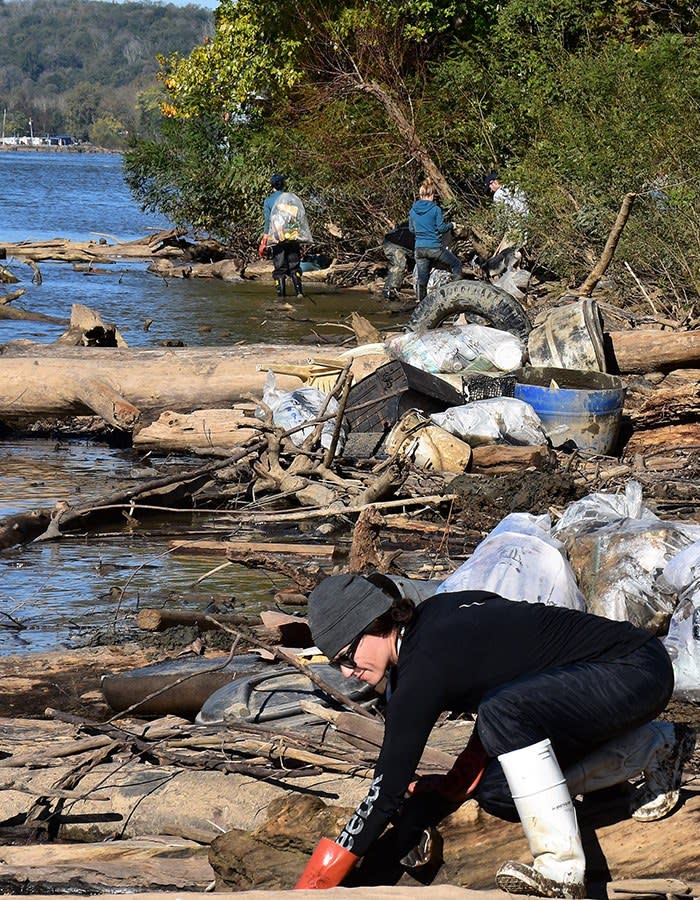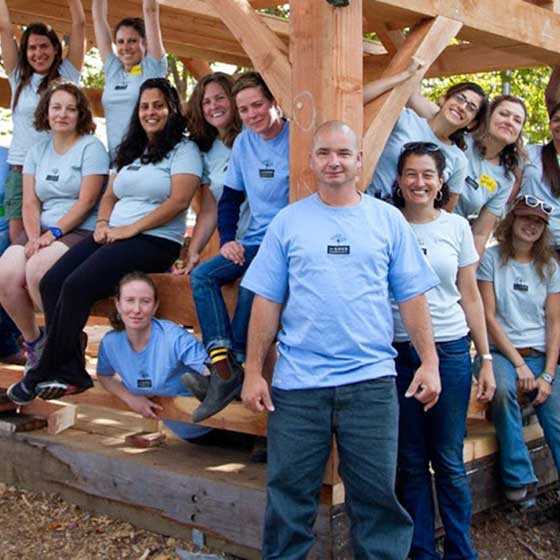That was the haul by the volunteers of In Good Company® who combed the banks of the Ohio River over two weeks in mid-October 2018, filling their large compostable trash bags and nearby river barges with the detritus of modern society—forgotten garbage often caked or buried in mud, some of it there for days or weeks, some of it for decades.
to adjust your cookie settings.
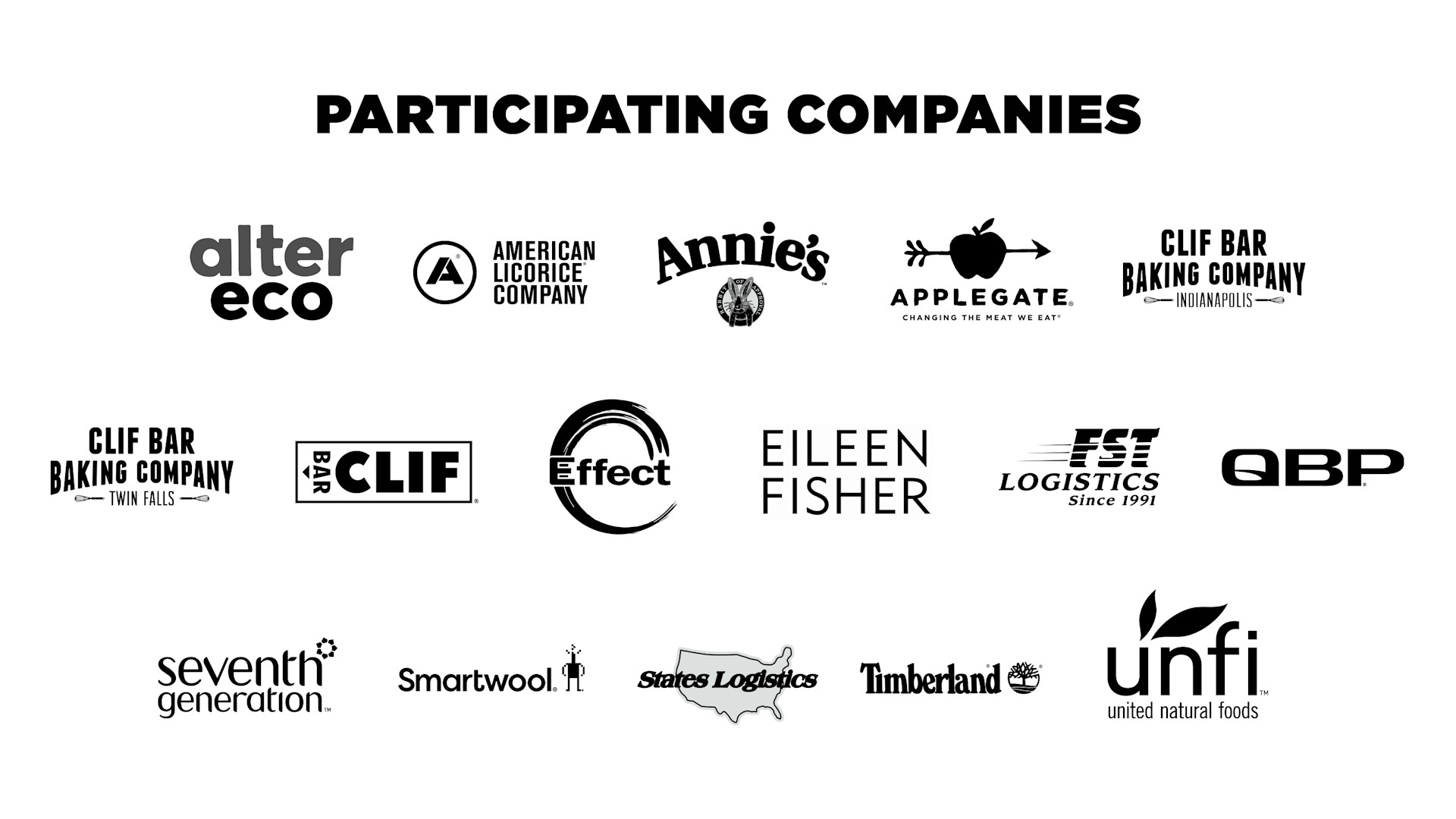
"The first day, I filled 10 huge bags with trash from just walking around in about a 30-foot radius,” said Matthew Dillon, Clif Bar’s senior director of agricultural policy and programs. “I would clean up the trash from the grass I was standing on, then realize there was a second layer of garbage underneath that and a third layer below that. I kind of went into shock, realizing that we humans don’t know what we’re doing to the planet.”
Protecting Oceans Starts with Rivers
In Good Company, an alliance of values-driven businesses Clif Bar & Company founded a decade ago, brings companies together for a shared purpose, donating the sweat equity of their employees to help address food, housing and environmental challenges in communities across the country.
Several times a year, In Good Company sends 15 to 20 employees from participating businesses for a week to work alongside local nonprofits and residents on key community issues. This time, sending two different groups of employees for back-to-back weeklong volunteer stints, In Good Company brought 35 volunteers from 16 companies in 11 states to rural Ripley, Ohio, about an hour southeast of Cincinnati, to help make a dent in the garbage lining the Ohio River, one of the nation’s most polluted rivers. It’s also the drinking water source for more than 3 million people and a transport hub for tons of coal annually.
“We wanted a project that would focus on plastics in the oceans,” said Brian Lemoine, one of two employees Clif Bar dedicates to running In Good Company. “Millions of tons of plastic waste enter our oceans each year, threatening marine ecosystems and the people who depend on them. By 2050, it’s estimated the weight of ocean plastics will exceed the weight of all the fish in the ocean.”
If oceans are the target, why clean up a river? The Ohio River flows into the Mississippi River, which empties into the Gulf of Mexico. “It’s easier to get plastics out of the water system earlier—in our rivers—than it is in the ocean,” Brian explained.
River Guardians Who Live on the Water
In Good Company worked daily on the Ohio River with Living Lands & Waters, the world’s only “industrial strength” river cleanup organization. With a staff of 10 who live on an eco-friendly house barge up to nine months a year, Living Lands & Waters over the past 20 years has with student and adult volunteers removed 10 million pounds of trash during 1,100 cleanups on 24 rivers in 21 states.
“Our rivers are a mess,” said Chad Pregracke, founder of Living Lands & Waters in 1998 and CNN Hero of the Year in 2013 for his tireless work cleaning up America’s rivers. “They end up lined with trash because of improper waste disposal, illegal dumping and flooding,” Chad explained. “But I don’t get discouraged. Change is slow. It’s like our barge—it’s heavy and starts slow, then builds momentum. It’s taken 20 years, but change has happened.”
Finding Inspiration Amidst the Mess
From costumes to jokes to a DJ boat that entertained volunteers while they scooped up garbage, Living Lands & Waters made the days float by with joy. “They’re so devoted, and that’s inspiring,” said Christa Wirkus, an ecommerce marketing associate for Annie’s Homegrown, Inc. “What they do is amazing!”
Volunteers also got fired up by the cleanup work itself. “Every spot, you’d get awestruck and say to yourself ‘Let’s do this!’” said Chris Demlein, a quality assurance tech for American Licorice. “Even though you can’t get every piece of trash, you’re making a difference.”
Residents were inspired, too. “In Good Company is such a great idea,” said Cindy Brown, owner of the Ohio River House that lodged the volunteers. “I love that Clif Bar is spearheading it, and I’m so grateful to be a part of it. Having the house filled with people having fun and doing good things—it’s what I dreamed of when I bought the place.”
Everyone Can be Part of the Solution
Meghan Elgan, education coordinator for Living Lands & Waters, recommended actions anyone can take to reduce trash in rivers and other waterways. They include avoiding the purchase of plastic bottles and other plastic products, buying reusable containers and urging companies to develop new uses for repurposed plastic. “Convenience is a killer,” she said. “It’s literally choking our seas.”
In Good Company volunteers vowed to take similar steps to reduce river pollution. Many said they will never again purchase water in single-use plastic bottles. Others said they will emphasize “reduce-reuse-repurpose” in their lives and those of friends and family. “I’m already looking for alternatives to the plastic contact lens case that I dispose of every 30 days,” said Annie Reid, a Clif Bar integrated marketing project manager.
For at least one volunteer, personal transformation from the cleanup experience may just bring him back to the Ohio River. “I’m thinking of using some of my vacation time to come out here again,” said Matt Mason, accounts receivable administrator at States Logistics. “To me, this is doing something important—and I can see the difference it makes.”
Donations from individuals and businesses help Living Lands & Waters to continue its cleanup projects and educational initiatives. Please consider supporting this amazing nonprofit.

